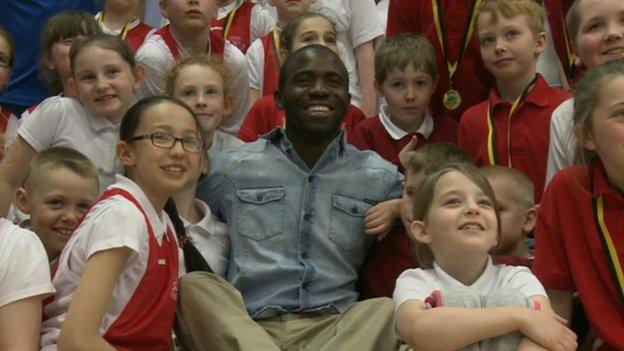Defibrillators in all state schools by 2023 government say
- Published
- comments
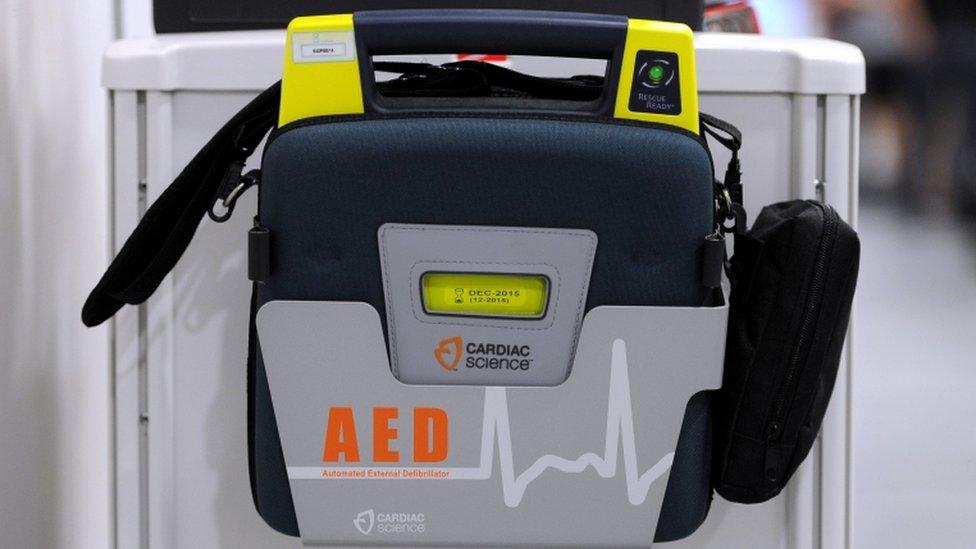
The government has said all state-funded schools will have a defibrillator by the end of 2023
All state-funded schools in England will have a defibrillator by the end of the school year in 2023, the government has announced.
The machine is used to start a person's heart again if it has stopped beating. If needed, the person is given a high-energy electric shock with the machine to restore the heart's normal rhythm.
The devices can already be found in lots of schools, but the government says it wants to "plug the gaps" by funding around 20,000 more kits.
The announcement follows a campaign by the parents of 12-year-old Oliver King who died when his heart stopped during a swimming lesson in 2011.
Events like this are incredibly rare but Education Secretary James Cleverly said he hoped the move "goes some way to preventing more tragic stories".
"Access to funding must not stand in the way of every school having on-site access to a life-saving defibrillator," he added.
Research shows that accessing a defibrillator within three to five minutes of a cardiac arrest increases the chance of survival by over 40%.
A cardiac arrest is when a person's heart suddenly stops pumping blood around their body. This affects the brain which stops receiving much-needed oxygen, and can cause a person to lose consciousness.
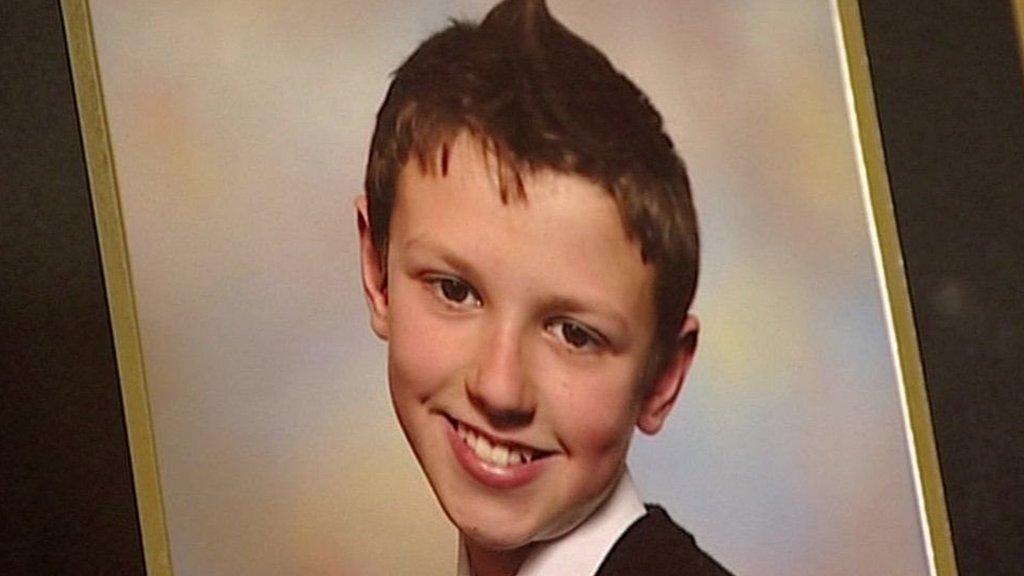
Oliver King died after his heart stopped in a school swimming lesson in 2011
Since meeting Oliver's father, the government has worked with charities such as the British Heart Foundation to assess the need for defibrillators across schools in England.
State-funded schools will be surveyed to find out how many devices are needed to ensure everyone has access, with the figure estimated at more than 20,000 in total.
The government has said it will fund at least one defibrillator in every school with more for larger campuses, with first deliveries are expected before Christmas this year.
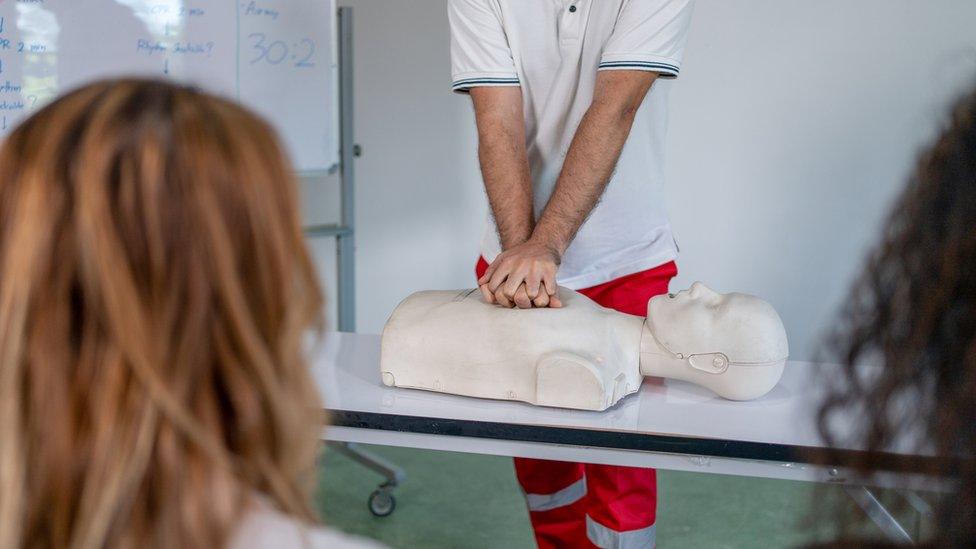
The government says the introduction of more defibrillators will build on existing requirements for schools to teach first aid
"Access to funding must not stand in the way of every school having on-site access to a life-saving defibrillator," said the Education Secretary.
"The evidence clearly shows that defibrillators drastically increase the chance of survival from a cardiac arrest, and it's particularly important that they are available close to sports halls and playing fields that children, young people, and the wider community use on a daily basis.
The Department for Education (DfE) said the introduction of more defibrillators in state schools will build on existing requirements for schools to teach first aid as part of the curriculum, with secondary pupils taught life-saving methods such as CPR and why defibrillators work.
The news has been welcomed by Oliver's family who have been campaigning since his death.
Fabrice Muamba tells Newsround more defibrillators are needed
"It's been 11 years since we tragically lost our Ollie to a sudden cardiac arrest while he was taking part in a school swimming lesson. If there had been a defibrillator on site, our son would still be alive today," Mr King said.
"Since 2012 we've fought with tenacity to make defibrillators mandatory in all schools.
"I'm therefore delighted that, after our decade-long fight, the Government has finally listened and schools will now be equipped with them.
"I am thankful to the MPs and ministers who've supported our campaign and particularly all of those at the Department for Education".
- Published18 June 2021
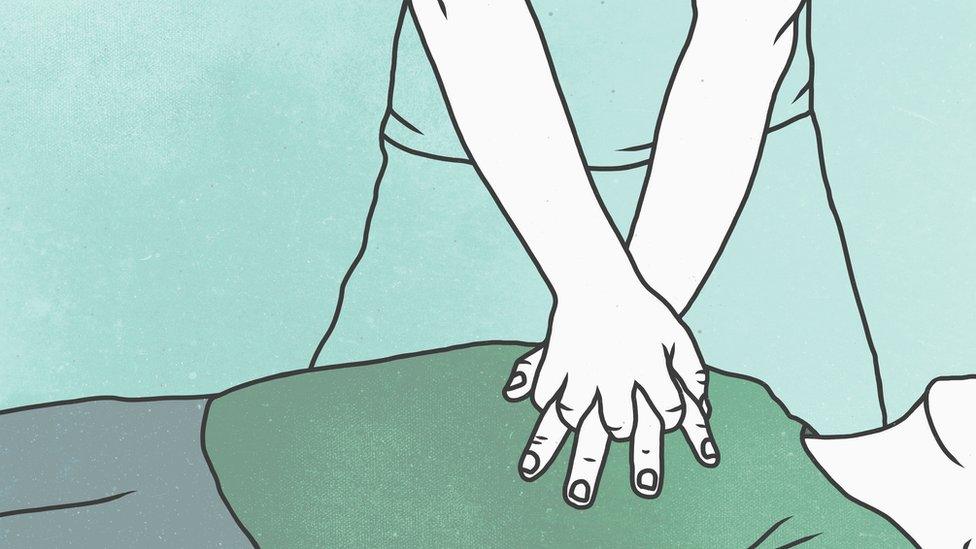
- Published13 September 2019

- Published12 April 2013
